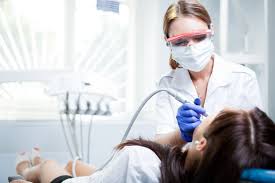Regular Dental Hygiene Appointments: Keeping it Clean
You’re probably well aware of the importance of hygiene. You shower pretty well every day, don’t you? Surely you show your teeth the same kind of care: brushing your teeth twice a day, hopefully fitting in some flossing?
Brushing and flossing are excellent for daily dental hygiene, and to round it off, it’s important to come in for regular dental hygiene appointments every three to four months.
Why aren’t brushing and flossing enough on their own?
Firstly, when you come to see our hygienists, the plaque and tartar they remove are in an area you cannot reach with brushing and flossing alone. (So don’t feel guilty about how hard they scrape away at your teeth. Relish in the squeaky clean results!)
The second, perhaps more critical, reason is that when tartar and plaque are left in your mouth for prolonged periods of time (longer than 90 to 120 days) it begins to calcify.
Calcify might sound vaguely positive, but this process actually leads to forming what we call “calculus”—no, not the math class: that yellow-tinged buildup on the surface of teeth. Unpleasant to look at, and quite harmful to your teeth.
When calculus forms and adheres to tooth surfaces, it does a number of things.
First of all, your gums become red and inflamed. If you decide to suddenly pick up flossing (although, it’s in your best interest to always be flossing) you will likely find your mouth bleeding a lot. This is due to the accumulation of plaque, tartar, and now calculus.
And it doesn’t stop there.
As this calcification continues, the inflammatory response actually pushes or dissolves the gum tissue, leading to recession.
While gum recession can be treated, once the recession happens the tissue will never grow back, and there’s not much that can be done to treat the problem.
In significant cases of gingival recession, we are able to make a graft from your palate and graft the tissue back onto the root surface, to cover the exposed root surfaces.
If we’re able to intervene within the 90- to 120-day mark (three to four months), we can usually stop the calculus from forming and adhering to root surfaces. Our hygienists are trained to look for areas of inflammation and calculus buildup and are experts at removing it!
Book your hygiene appointment with one of Dr. Jerry Vasilakos’ hygienists at Planet Dentistry in Toronto, and come in and get your head examined!




